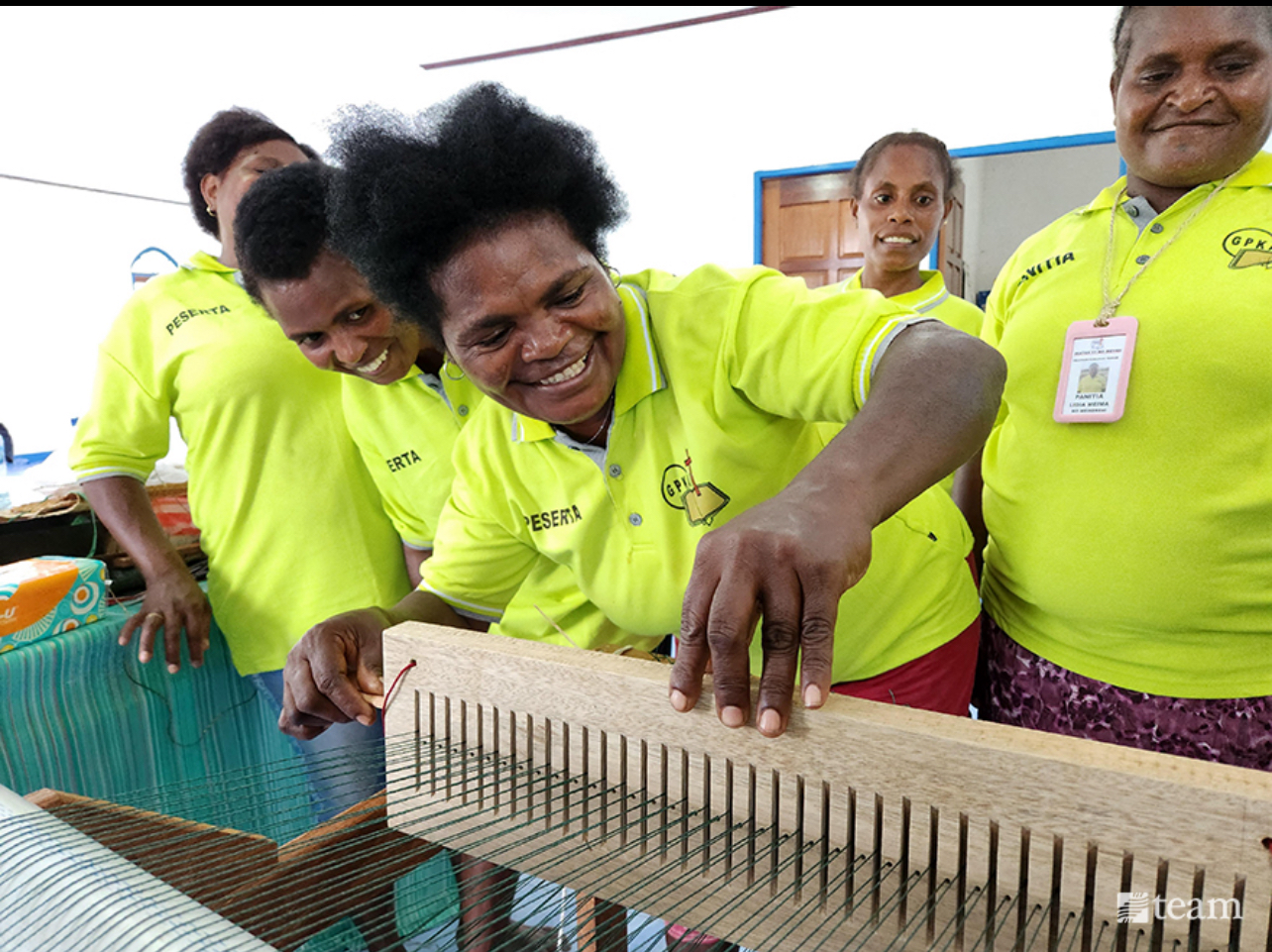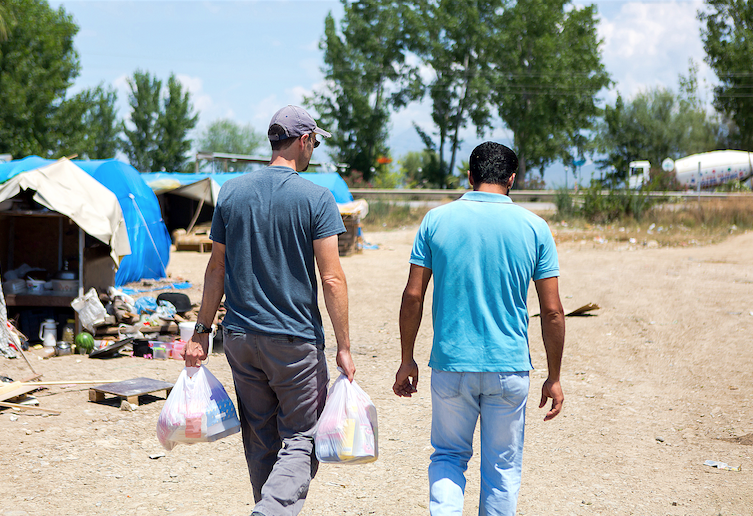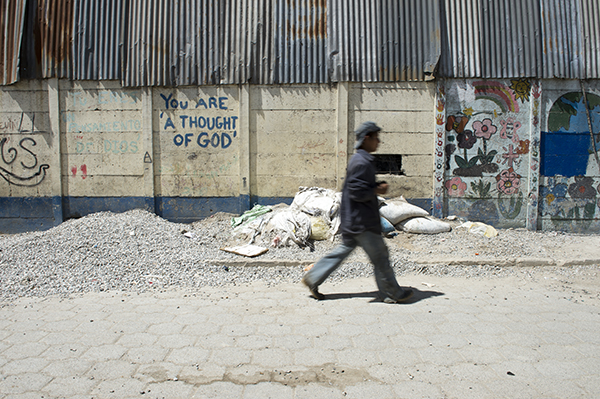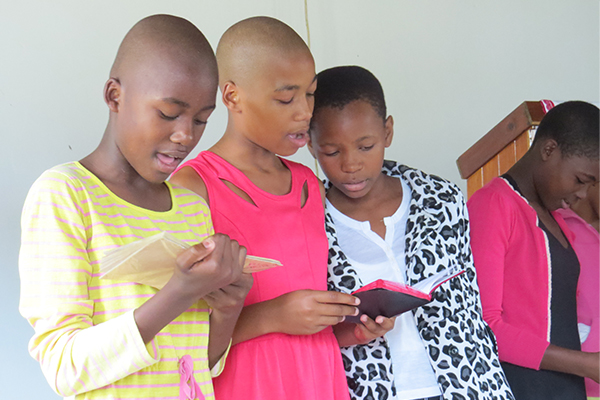
Prayer Focus
7 Ways to Pray for Social Justice Ministries [February Prayer Focus]
February 1, 2017
by Mark Watson

“If one of you says to them, ‘Go in peace; keep warm and well fed,’ but does nothing about their physical needs, what good is it?” James 2:16 (NIV)
Jesus came to give us hope that surpasses all physical need. Yet over and over, his word tells us to care for the poor, to seek justice for the oppressed and to love others as ourselves. Around the world, missionaries are obeying these commands by providing physical aid while sharing about the love of Jesus Christ.
This February, will you pray with us for social justice ministries around the world?
Click here to get a printable version of these requests.
Pray for resources to help those in need.

Workers in the Middle East provide weekly groceries to refugees living in tent communities. Photo by TEAM
Whether it’s hunger, homelessness or a lack of job skills, most social injustices are hard to solve apart from physical resources.
Missionaries in the Middle East buy groceries for refugees each week. Workers in Italy give shelter to human trafficking victims. A program in Zimbabwe teaches agricultural job skills to orphans who have reached adulthood.
Each of these projects — and more — need your prayers that God will continue to provide necessary funds, equipment, buildings and staff to serve those in need. Pray also that workers will know how to use resources efficiently and maximize their impact.
Pray for effective job skills and recovery programs.
Vite Trasformate, a ministry to sex trafficking victims, gets the same calls every week: A woman is desperate to stop working on the streets of Italy, but she can’t find any other job. Can the ministry help her?
Unfortunately, long-term social injustices can’t be solved by momentary charity.
That’s why missionaries ask for prayer for job skills training programs, transitional housing and counseling support that will allow victims to stand on their own. Please ask God to provide each of these and other tools to help oppressed people transition into safe, healthy and happy lives.
Pray for emotional and spiritual care to heal deep wounds.

Life for homeless youth in Guatemala is characterized by cyclical poverty, addiction and little hope for the future. Workers are partnering with pastors to provide care and support for these youths. Photo by TEAM
Rejection is all the homeless children of Guatemala know. So when missionary A.J. Westendorp says God loves them, it can be hard for them to comprehend. Beneath every physical social injustice, there are deep spiritual and emotional wounds. And sometimes, well-intentioned but ill-informed efforts can make those wounds worse.
Please pray that missionaries will be able to provide positive, effective spiritual and emotional care. Ask God to work in the hearts of the oppressed so they can know his love, be transformed and experience true healing.
Pray for new language skills among team members.
How do you minister deeply when your language skills are shallow? A team of missionaries in the Middle East originally learned the local language. Unfortunately, it’s not the language spoken by refugees living in their city. Workers in Europe are dealing with the same problem as they seek to serve refugees and trafficking victims from all different nations.
Please pray for new co-workers who speak these different languages so that each person can be served both physically and spiritually. Pray also that current missionaries will catch onto new languages quickly.
Pray for cooperation among missionaries and partner ministries.

In South Africa, workers partner with the local church to provide meals and school uniforms for orphans in need.
One of the beautiful things about social justice work is the way it brings workers from different organizations together. In South Africa, TEAM partners with a local church ministry to provide regular meals to orphans. In the Czech Republic, a new missionary is getting brothel outreach training from a more experienced worker. These connections make work more efficient and effective as each person brings their unique strengths and experiences.
Please ask God to foster unity among missionaries around the world as they fight social injustices. Pray that God will show each of them what they can contribute and how they can help one another.
Pray for Christ-centered relationships with unsaved volunteers.
When Anne Ingram started working with refugees, she didn’t realize how it would open doors to speak with ordinary Germans who also volunteered to serve refugees. Recently, one volunteer invited Anne and her husband to a dinner party where they got to have a long conversation about the gospel.
Please pray for missionaries who partner with non-believers in their work. Pray that they will be a light to their new friends and lead them to our Savior.
Pray for the oppressed to find hope and rest in Jesus.
Ultimately, any hope we find on earth will come to an end — unless it’s rooted in Jesus. That’s why missionaries don’t just teach job skills; they weave the Bible into the training. They don’t just offer a place to stay; they offer prayers of peace and comfort. They don’t just cook meals; they provide access to the Bread of Life.
Please pray that every effort to right the wrongs of this life will be paired with the message of Jesus Christ. Pray that each person served will see that Jesus is the One who frees slaves, who comforts the hurting and who gives us life eternal.

